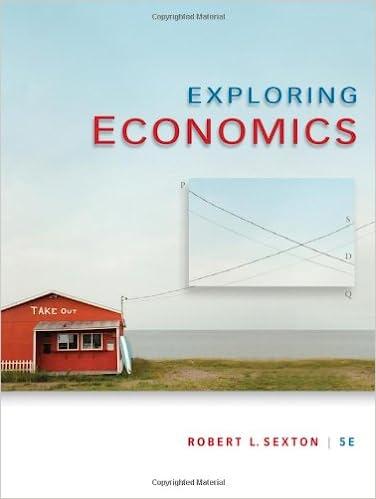Multiple Choice Questions: 1. Money's principal role is to serve as? a. A standard for credit transactions.
Question:
1. Money's principal role is to serve as?
a. A standard for credit transactions.
b. A medium of exchange.
c. A standard for making bank loans.
d. A standard for the real bills doctrine.
2. The money supply that includes only currency, checkable deposits, and traveler's checks is known as?
a. M1.
b. M2.
c. M3.
d. L.
3. Credit cards?
a. Are included in the M1 definition of the money supply.
b. Are included in the M2 definition of the money supply.
c. Are included in the M3 definition of the money supply.
d. Are included only in the broadest definition of the money supply.
e. Are not included in the definition of the money supply.
4. The distinction between M1 and M2 is based on?
a. Liquidity-the ease with which an asset can be converted into cash.
b. Storability-the ease with which an asset can be stored.
c. Divisibility-the ease with which an asset can be used to make specific payments.
d. Portability-the ease with which an asset can be moved to make a payment on the spot.
e. All of the above.
5. Barter is inefficient compared to using money for trading because?
a. It is more expensive over long distances.
b. Potential buyers may not have appropriate items of value to sellers with which to barter.
c. It is more time consuming, since it is more difficult to evaluate the products that are being offered for barter than to evaluate money.
d. Of all of the above.
e. Of none of the above.
6. Currency is a poor store of value when?
a. The unemployment rate is high.
b. Banks are failing at an abnormally high rate.
c. The rate of inflation is very high.
d. Gold can be purchased at bargain prices.
e. All of the above are correct.
7. Money makes it easier to borrow and repay loans. This function of money is referred to as?
a. A store of value.
b. A means of deferred payment.
c. A unit of account.
d. A standard of value.
e. None of the above.
8. Money is?
a. Whatever is generally accepted in exchange for goods and services.
b. An object to be consumed.
c. A highly illiquid asset.
d. Widely used in a barter economy.
9. Without money to serve as a medium of exchange?
a. Gains from trade would be severely limited.
b. Our standard of living would probably be reduced.
c. The transaction costs of exchange would increase.
d. All of the above are true.
Fantastic news! We've Found the answer you've been seeking!
Step by Step Answer:
Related Book For 

Question Posted:





